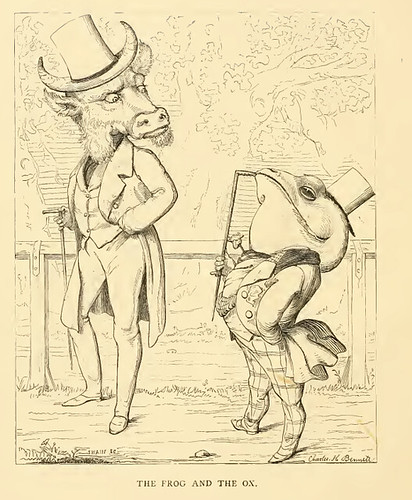HODIE (Roman Calendar): pridie Idus Iulias, the day before the Ides of July.
MYTHS and LEGENDS: The art image for today's legend shows Oedipus at Colonus; you can also see the legends for the current week listed together here.

TODAY'S MOTTOES and PROVERBS:
3-WORD MOTTOES: Today's 3-word motto is In veritate triumpho (English: In the truth, I triumph).
3-WORD PROVERBS: Today's 3-word proverb is Fortunam reverenter habe (English: Regard Fortune with respect).
RHYMING PROVERBS: Today's proverb with rhyme is: Post vinum verba, post imbrem nascitur herba (English: After wine come words, as grass grows after the rain).
VULGATE VERSES: Today's verse is Vanitas vanitatum, omnia vanitas (Ecc. 1:2). For a translation, check out the polyglot Bible, in English, Hebrew, Latin and Greek, at the Sacred Texts Archive online.
ELIZABETHAN PROVERBS: Here is today's proverb commentary, this time by Taverner: Faber compedes quas fecit ipse gestet: The fetters that the smith hath made, let him were them him selfe. The Proverbe whiche commonly we use in english, for this purpose is this: such ale as he hath brued let him drinke him self. Verely manie there be, which make a rod for theyr owne arse.
BREVISSIMA: The distich poster for today is Fatum Venturum. Click here for a full-sized view; the poem has a vocabulary list and an English translation, too.



TODAY'S FABLES:
FABULAE FACILES: The fable from the Fabulae Faciles widget is Avarus et Poma Marcescentia, a wonderful story about a miser and his apple orchard (this fable has a vocabulary list).
MILLE FABULAE: The fable from the Mille Fabulae et Una widget is Rana et Bos, the story of an ox and a self-important frog.

Greek Bible Art - and Latin and English, too. Below is one of my Greek Bible Art graphics; for the individual Greek, Latin and English versions of the graphic, see the blog post: ὁ ἄγγελος εἶπεν ταῖς γυναιξίν, μὴ φοβεῖσθε ὑμεῖς. Angelus dixit mulieribus: Nolite timere. The angel said unto the women: Fear not ye.

Myth and Folklore Books. I'm accumulating some book recommendations for the classes I teach and wanted to share them here. Today's book is the amazing collection of extra-Biblical folktales, Legends of the Jews, by Louis Ginzberg. This is a free Amazon Kindle eBook, and you don't need a Kindle to read it - you can read Kindle books on any computer or mobile device, or you can use the Amazon Cloud Reader in your browser.
